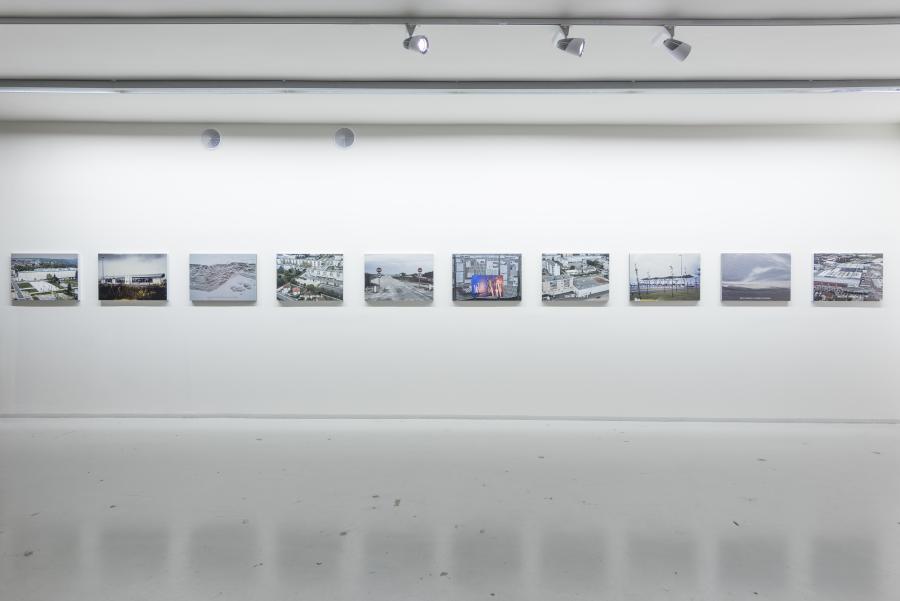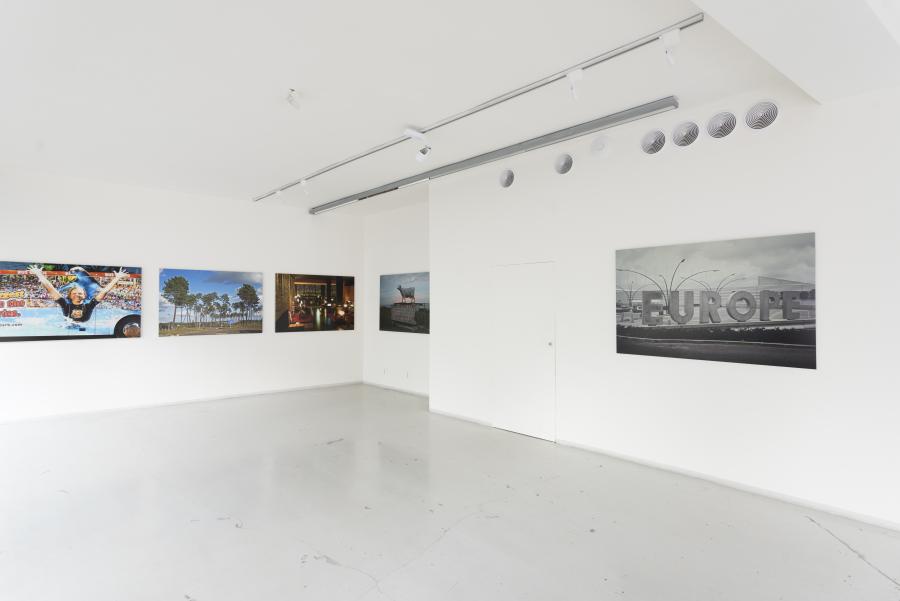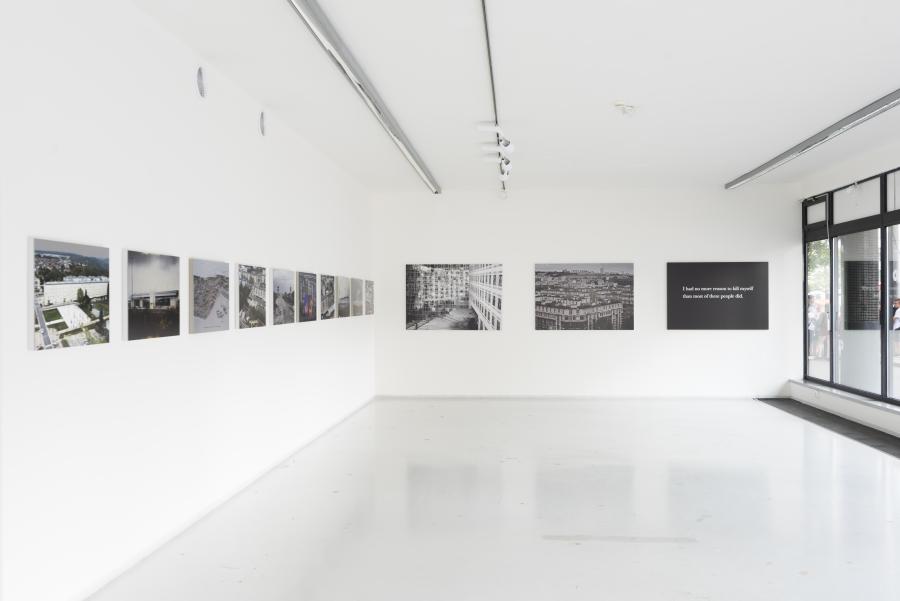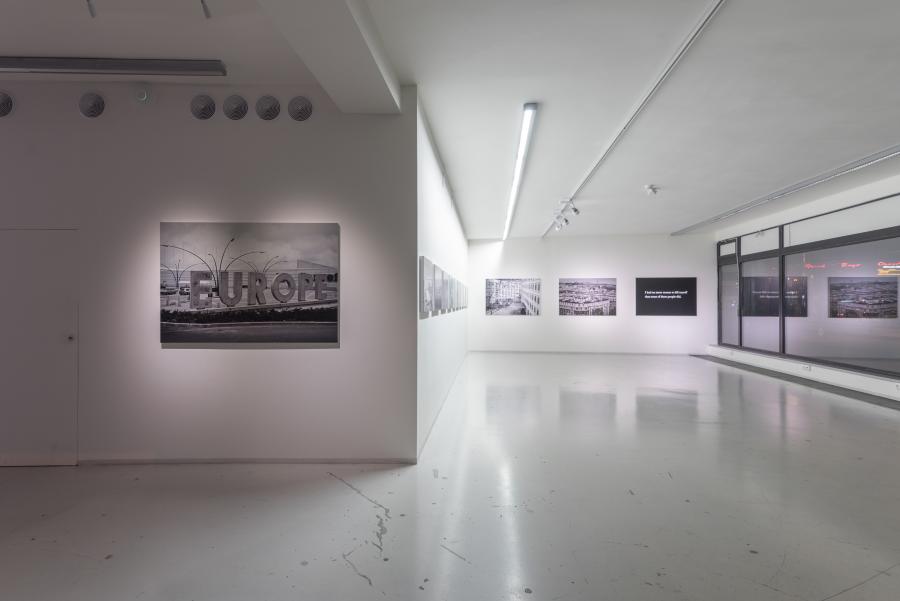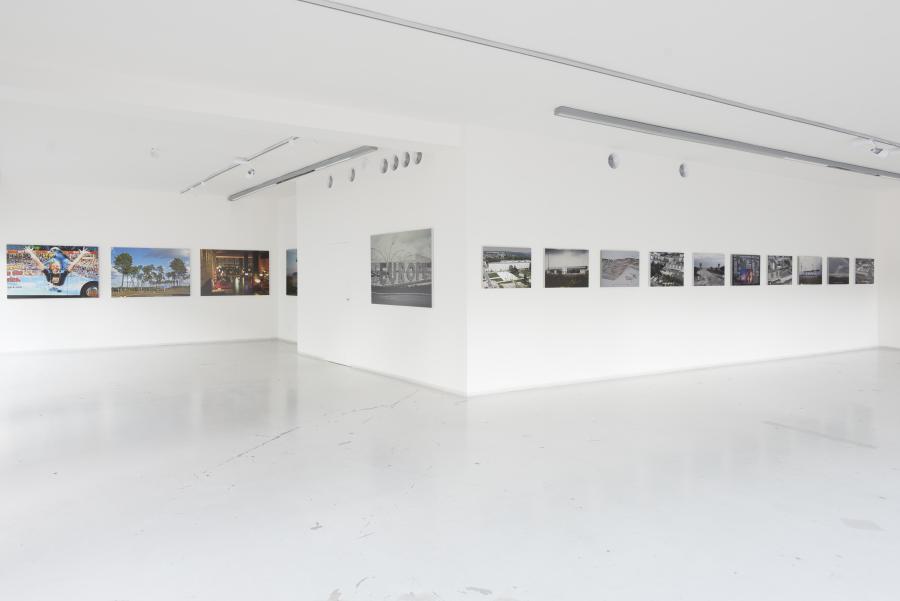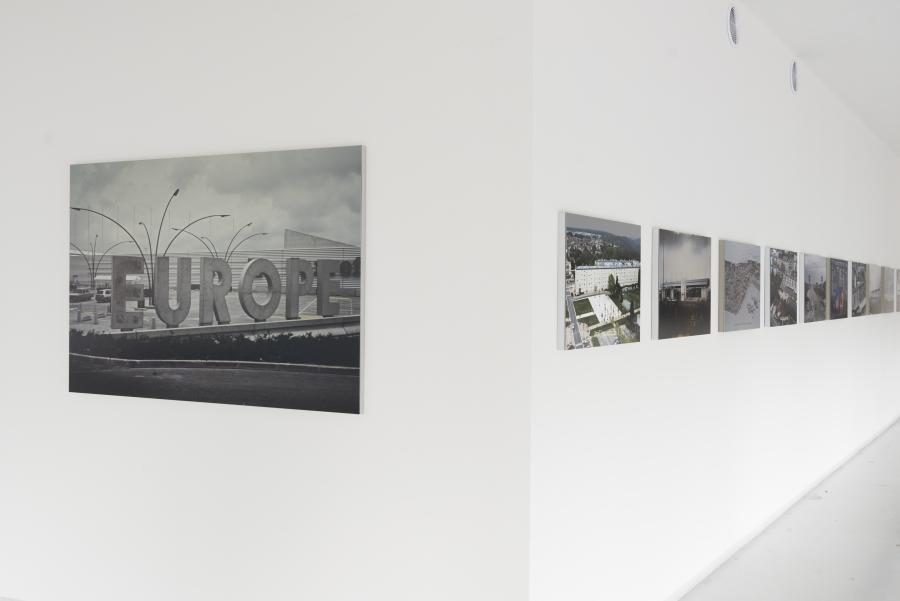The World as Supermarket and as Derision
Michel Houellebecq:
The World as Supermarket and as Derision
/ an extract from essay /
Arthur Schopenhauer did not believe in History. He therefore died convinced that the revelation he brought on the world, on the one hand existing as will (as desire, as vital impulse), and on the other hand perceived as representation (in itself neutral, innocent, purely objective, and open as such to aesthetic reconstruction), would survive the succession of generations. Today we can say he is partially wrong. The concepts he put in place can still be recognised in the fabric of our lives; but they have undergone such metamorphoses that one can question what validity remains in them.
The word “will” seems to indicate a tension of long duration, a continual effort, conscious or not but coherent, towards an aim. Granted, birds still build nests, stags still fight for the possession of females, and in Schopenhauer’s sense one can very well say that it is the same stag that fights, and the same larva that roots about, ever since the difficult day of their first appearance on Earth. It is completely otherwise for men. The logic of the supermarket leads necessarily to a scattering of desires; supermarket man cannot organically be the man of a single will, of a single desire. Hence a certain depression of willpower in contemporary man: not that individuals desire less, on the contrary they desire more and more; but their desires have acquired something slightly shrill and squealing: without being pure simulacra, they are largely the product of external determinations—we will say advertising determinations in the broad sense. Nothing in them resembles that organic and total force, obstinately turned towards its accomplishment, suggested by the word “will.” Hence a certain lack of personality, perceptible in every one of us.
Deeply infected by meaning, representation has lost all innocence. One can call innocent a representation which simply presents itself as such, which simply claims to be the image of an external world (real or imaginary, but external); in other terms, which does not include in itself its own critical commentary. The massive introduction of references, derision, irony and humour into representations has rapidly undermined artistic and philosophical activity by transforming it into generalised rhetoric. All art, like all science, is a means of communication between men. It is obvious that the effectiveness and intensity of communications diminish and tend to cancel each other out the moment when doubt arises on the veracity of what is said, on the sincerity of what is expressed (can one imagine, for example an ironic science?). The ongoing disintegration of creativity in the arts is thus only another aspect of the most contemporary impossibility of conversation. In fact, everything happens in current conversation as if the direct expression of a feeling, of an emotion, of an idea had become impossible, because deemed too vulgar. Everything must pass through the distorting filter of humour, humour which of course ends up empty, and turns into tragic muteness. Such is both the history of the famous “incommunicability” (it should be noted that the endless exploitation of this theme has in no way prevented incommunicability from extending in practice, and it remains relevant more than ever, even if one has become a bit weary of talking about it) and the tragic history of painting in the 20th century. The development of painting thus manages to represent, more it is true by analogy of atmosphere than by a direct approach, the development of human communication in the contemporary period. In both cases, we slip into an atmosphere that is unhealthy, rigged, deeply derisory, and tragic precisely due to its derisory nature. Thus the average person passing through a picture gallery must not stop for too long, if he wishes to preserve his attitude of ironic detachment. After a few minutes, he will, despite himself, be seized by a certain disarray; he will feel at least a numbness, a malaise, a worrying deceleration of his humour function.
(The tragic intervenes exactly at this moment when derision can no longer be perceived as fun; it is a sort of brutal psychological inversion, which translates into the appearance in the individual of an indomitable desire for eternity. Advertising can only avoid this phenomenon so contrary to its objectives through an endless renewal of its simulacra; but painting keeps as its vocation the creation of permanent objects with their own character; it is this nostalgia for being which gives it its sorrowful halo, and makes of it, despite everything, a faithful reflection of the spiritual situation of western man.)
In contrast, one will note the relatively good health of literature during the same period. This is very easy to explain. Literature is, profoundly, a conceptual art; it is even, strictly speaking, the only one. Words are concepts; clichés are concepts. Nothing can be asserted, denied, put into perspective, and mocked without the help of concepts, and of words. Hence the astonishing robustness of literary activity, which can refuse itself, destroy itself, and decree itself impossible without ceasing to be itself. Which resists all the mises en abyme, all the deconstructions, and all the accumulations of degrees, however subtle they may be; which simply lifts itself back up, shakes itself and gets back on its paws, like a dog emerging from a pond.
Unlike music, unlike painting, and also unlike cinema, literature can thus absorb and digest limitless quantities of derision and humour. The dangers threatening it today are nothing like those which have threatened, and sometimes destroyed, the other arts; they are due much more to the acceleration of perceptions and sensations which characterises the logic of the hypermarket. A book can only be appreciated slowly; it implies reflection (not in the sense of intellectual effort, but in that of flashback); there is no reading without stopping, without reverse movement, without re-reading. This is an impossible or even absurd thing in a world where everything evolves and fluctuates, where nothing has permanent validity; neither rules, nor things, nor beings. With all its strength (which once was great), literature opposes the notion of permanent actuality, of perpetual present. Books call for readers; but these readers must have an individual and stable existence: they cannot be pure consumers, pure ghosts; they must also be, in some way or other, subjects.
Undermined by the cowardly haunting of the politically correct, dumbfounded by a flow of pseudo-information which gives them the illusion of a permanent modification of the categories of existence (one can no longer think what was thought ten, a hundred or a thousand years ago), contemporary Westerners can no longer manage to be readers; they can no longer satisfy that humble request from a book placed in front of them: to simply be human beings, thinking and feeling for themselves.
Even more so, they cannot play this role in the face of another being. But they would have to: for this dissolution of being is a tragic one; and each of us continues, moved by a painful nostalgia, to ask of the other what he can no longer be; to seek, like a blinded ghost, that weight of being he no longer finds in himself. That resistance, that permanence; that depth. Of course, all of us fail, and the solitude is atrocious.
The death of God in the West constituted the prelude to a great metaphysical serial that has continued to this day. Any historian of mentalities would be able to reconstruct the detail of the stages; let’s say, to summarise, that Christianity pulled off the masterstroke of combining a fierce belief in the individual – compared to the Epistles of Saint Paul, the whole of ancient culture seems to us today to be curiously policed and dreary – with the promise of eternal participation in Absolute Being. Once this dream had vanished, various attempts were made to promise the individual a minimum of being; to reconcile the dream of being he had in him with the haunting omnipresence of becoming. All these attempts, until now, have failed, and the unhappiness has continued to spread.
Advertising constitutes the latest in these attempts. Although it aims to arouse, provoke, and be desire, its methods are basically quite close to those that characterised former morality. In effect, it puts in place a terrifying and hard Superego, which is much more pitiless than any previously existing imperative, and clings to the individual to whom it endlessly repeats: “You must desire. You must be desirable. You must participate in competition, struggle, the life of the world. If you stop, you stop existing. If you lag behind, you are dead.” Denying all notion of eternity, defining itself as a process of permanent renewal, advertising aims to vaporise the subject and turn him into an obedient ghost of becoming. And this skin-deep, superficial participation in the life of the world is supposed to take the place of the desire to be.
Advertising fails, depressions multiply, the disarray worsens; advertising continues, however, to build the infrastructures for the reception of its messages. It continues to perfect means of movement for beings who have nowhere to go, because they are nowhere at home; to develop means of communication for beings who have nothing left to say; to facilitate possibilities of interaction between beings who no longer wish to enter into relations with anyone.
– – – – –
In the original – « Approches du désarroi » by Michel Houellebecq
Published in Genius Loci (La Différence, 1992), Re-published in Interventions (Flammarion, 1998), Rester Vivant (Flammarion and Palais de Tokyo, 2016).
– – – – –
Conversation between Michel Houellebecq & Jean de Loisy
Published in the Rester Vivant catalogue.
(published by Flammarion and Palais de Tokyo, 2016).
JL | Is there a relationship between photography and poetry?
MH | Yes, there is a relationship, but I don’t know exactly what it is. For me, the primary and most important operation is to frame. Framing means cutting out a zone from the world, in such a way that it seems to have no exterior. My approach is a complete negation of anything off-camera.
JL | Would you say that photography is an independent organism, or a self-sufficient biotope?
MH | Some film theorists insist on the importance of the off-camera. I’m completely against this way of seeing things. What matters is what lies in the camera’s range. This is a whole, which says there is no exterior. It is a part of the world which is a world unto itself. In the same way, poetry is a contradiction-free discourse. It is a totalising discourse. It is different from the novel in this respect.
JL | You mean that photography, like poetry, is pure expression, extraneous to its subject matter.
MH | The idea above all is that things are as they are, and could not be any different. Intrinsically, we don’t really care who produced a given poem or photo. The sensation you get when taking a photo, which is quite clear, because what you photograph exists before you, is oddly enough like the one you get when writing a poem. You get the impression that the combination of words existed before you, and that you’ve just found it. The legal terms for the person who discovers a treasure is an inventor. When I write poems, I often feel more like an inventor than a creator. I guess it must be the same sensation for those who invent melodies.
JL | But, in general, there’s more neutrality in your photography than in your poetry.
MH | That’s true. It’s because poetry also allows you to express feelings. Which photography can’t, in my opinion.
JL | Apart from its signification, no other permutation is possible.
MH | There can be no permutations, and above all no negation of a poetic statement.
JL | It arises like a force, and not like a discourse.
MH | Any discourse is deniable. The aim of poetry is to produce undeniable statements. Just like poems, photographs are produced only for themselves. So any attempt to set up an exhibition is as absurd as putting together a collection of poems, but also just as interesting. It entails producing an organised continuity, using things which exist only for themselves. Here, at the Palais de Tokyo, what I certainly cannot be criticised for is not having thought things out as an “exhibition.” Because it is exciting to put things in a certain order, and to form chapters.
JL | What is striking about Rester vivant is its succession of sentences, organised into chapters. In the end, your show at the Palais de Tokyo is rather similar, because it is a succession of poetic rooms.
MH | For me, Rester vivant is not a collection of poems. It’s been classified as poetry because people didn’t know where to place it.
JL | It’s a bit like a “Letter to a Young Poet.”
MH | Yes, but you could also think of Baudelaire’s “Advice to Young Writers.” In the end, I’m closer to the example of Baudelaire. Because when Rilke wrote his letters, he was actually an old poet; while, when Baudelaire gave his advice, he had published nothing. But, at the time, I think I was above all influenced by Saint Paul. His insolence. The fact of giving strong directives.
JL | And discouraging ones too…
MH | To begin with; then there’s the New Jerusalem, and everything gets better.
JL | After this text, you published poetry.
MH | I had actually written a lot of poems before Rester vivant. I started with poetry when I was 18 or 20 years old. I wrote Rester vivant in one or two weeks, when I was 33, I think.
JL | I have the impression that your show was conceived as a sentence, or more exactly two sentences, because there is a break in the flow of the exhibition. Is it like a Russian doll, I mean with poems inside a sentence?
MH | The fact that there’s a bifurcation, with parallel paths, is a great possibility, which you’d often like to have when writing a book.
JL | You’ve done something similar in The Possibility of an Island.
MH | I tried, but one narrative ends up taking over from the other. In The Possibility of an Island, Daniel1’s narrative dominates the first two parts, then Daniel25’s narrative dominates the end. I wanted to avoid that, but I failed to do so.
JL | Both poetry and photography lead very quickly to a concept, without needing any demonstration first.
MH | The speed of execution is an important point. It takes me slightly longer to take a photo than to write a poem. The framing is often fine, but then the lighting is wrong. So you have to wait for the light to get a bit better. I haven’t written any poetry for a long time. I can’t quite remember how to go about it. But, anyway, I do remember that it goes quite quickly.
JL | Yet fixedness is one of the exercises you say that you practised when young, and for a long time; just staring fixedly at something.
MH | Yes, staring at things fixedly, without any project.
JL | Does this allow for detachment?
MH | It’s very good for your health. In general, we always have a project, more or less, and looking at things without one, as if we weren’t concerned, is a spiritual exercise I’d recommend.
JL | How do you proceed?
MH | You remain in one place, and don’t move your eyes.
JL | But accidents can occur in your field of vision.
MH | Yes, but you see them as transient things. It’s very easy to do this with clouds. You look at the passing clouds, and you get the impression that you can see the world, and that the world is bearable.
JL | You have written poems about the indifference of clouds. You then return the compliment, so to speak.
MH | Yes, but this relationship is a balanced one. It’s more difficult with interesting things, like human beings (laughter).
JL | These might be called distancing exercises for you.
MH | Above all, they are exercises of non-existence. All you have left is perception. Perceptions of the world, beyond, or rather beneath, any form of psychology, varies between people. Some people—and I think I’m one of them—are very visual. For others, smells or sounds are really important. Someone summed up Huysmans quite abruptly by saying: “Huysmans is an eye.” As for me, this might not be as marked as it was for Huysmans, but I’m still more visual than anything else. This is something that differentiates authors more significantly than their biographies.
JL | In an interview, you evoke aquaplaning, when a slight layer of water makes it impossible to grip the road…
MH | It’s a very disturbing, but also marvellous experience. For a moment, which can be a long one, you’re on a trajectory parallel to the world.
JL | Is it an event close to daydreaming?
MH | While aquaplaning, objectively you can’t do a thing. What’s more, you’re in motion. You’ve moving in relation to the world. The fact that it might all end badly isn’t very important. You can’t deny that there’s danger. And yet you feel great. This is really close to the sublime, as defined by Kant.
JL | A marvellous frisson. Is there a relationship between dreams and photography, as there is between dreams and poetry? In dream situations, you don’t have the grammar of reality… Isn’t a dream a grammar-less sentence?
MH | In a dream, there is a breaking down of the opposition between yourself and what you’re looking at, and between yourself and what you’re living out. Furthermore, dreams have no exterior spaces. This results in the fact that you can’t escape from them.
JL | Which corresponds to a totalising image.
MH: In a real situation, you say to yourself that you could escape, or be elsewhere. In a dream, the situation forms a totality. You get the same thing in a photo: when you take a photo, the frame determines a totality.
JL | Isn’t there a contradiction in the fact of putting sound in this exhibition, in an encounter with the photographs?
MH | Of course, but there would be no sound if there were no exhibition.
JL | You mean that it’s because of the public presentation that you have staged it.
MH | It’s an attempt at making vaster things from totalities. Creating a situation for the visitors. To go back to the comparison with poetry: you might well place your poems in a certain order, but the normal reader’s reaction is to flick through them, which immediately breaks down your order. An exhibition is really something supplementary.
JL | When you were planning the hanging arrangement of the exhibition, with great precision, you de-partitioned closed universes and had them converse together. You applied an exactitude to the exhibition plan which amazed us all. Did you find writing an exhibition to be very complicated?
MH | Yes, doing something in two dimensions is complicated.
JL | But it can be compared to writing?
MH | Oh yes, absolutely.
JL | It’s closer to cinema, maybe.
MH | It still remains closest to the composition of a poetry collection.
– – – – –
Michel Houellebecq (Michel Thomas) is, since the 1990s, one of the contemporary authors of French language the most translated and read in the world. He was born on the French island Réunion in 1958, his mother was a doctor and his father a mountain guide. His life gained a certain stability after his parents’ divorce, when, at the age of six, he went to live with his paternal grandmother (whose maiden name, Houellebecq, he adopted as his pen name). Michel Houellebecq attracted attention with his novels Whatever and especially Atomised, which gained him a wide readership. The latter and its successor Platform are regarded as pioneering works of French literature, particularly for their description of the emotional and sexual suffering of someone belonging to western civilisation at the turn of the millennium. In 2010 Michel Houellebecq won the Prix Goncourt for his novel The Map and the Territory. As a lover of photography who studied at the École Nationale Louis Lumière in Paris before embarking on his literary career, Houellebecq for the first time presented his photographs at Pavillon Carré de Baudoin, Paris (Before Landing, 2014), later at Palais de Tokyo, Paris (Rester Vivant, 2016), Manifeste 11, Zürich (2016), and Venus over Manhattan Gallery, New York (French Bashing, 2017).
– – – – –
Zastavte sa (Aké fotografie vystavuje spisovateľ Michel Houellebecq v Bratislave?)
https://www.tyzden.sk/kultura/48391/zastavte-sa/
